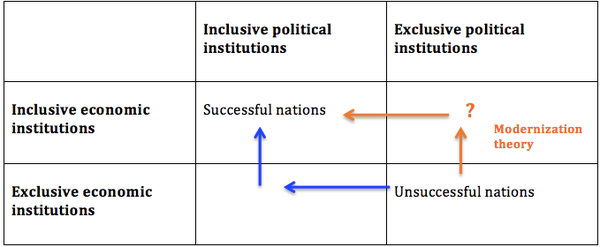By Tefo Mohapi
It is not by mistake, “juju”, or a curse that most African nations are failing and in most cases poor (as far as providing a good life for citizens is concerned). Despite being blessed with having all sorts of natural resources, land, etc. to this day, Afrika is “poor.”
Correction, not poor, but terribly managed.
It’s worse when you consider that today, almost all the world’s knowledge is not only available in books, but also in most cases for free on the web. So, if that’s the case, with all the technology solutions available in the world and all the knowledge available, why are most Afrikan countries failing?
The reason why Afrikan countries don't prosper
I would argue the primary reason, at the core of it all, is that the wrong people are in the wrong positions. As such, the wrong people are making the wrong decisions based purely on their egos and patronage.
Think about it.
It is actually like a pyramid (scheme) of patronage, with decisions at every level made in favor of whoever the next upper-level patron is. So, for example, instead of hiring the best people and deploying the best available technology to address any particular problem, a solution and people that do things that benefit the patron are entrusted with developing solutions.
This is also why criticism that aims to improve anything is also frowned upon in general, because…that’s not how patronage works.
This brings me to one of the most insightful books I have read - Why Nations Fail.

Why nations fail
So, the next step that follows from a system of patronage is that extractive political and economic systems are developed (the authors don’t mention patronage, but I think it is a precursor to the beginning of a failing state). For example, despite it being known that digitized and transparent government procurement systems are the most efficient (for the benefit of citizens), a country that runs heavily on a patronage network will hang onto inefficient methods simply because new technology threatens this patronage pyramid (scheme).
Botswana is arguably one of few countries in Afrika that has been able to hold onto being stable and relatively prosperous over the decades and centuries. This is both before the British came to the country and after Botswana assumed independence. The Southern Afrikan country is doing relatively well for its citizens not because it has a small population (many countries have similar populations as Botswana but are failing) but simply because, even after assuming presidency, Seretse Khama and his political party chose to enforce inclusive political and economic institutions. Of course the country has had its fair share of problems but it has fared better for its citizens than many Afrikan countries.
This is also something many technology startup founders miss when they pitch their efficient and innovative solutions to African governments, i.e.if it threatens the patronage network, my friend, forget it.
How do we get our various African countries out of this cycle of poverty and failure?







